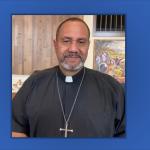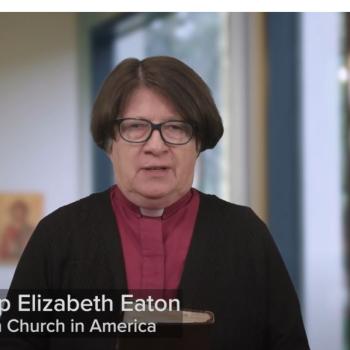Today marks two months since Rev. Nelson Rabell-González was removed from his position as pastor of Misión Latina Luterana on Dec. 12, 2021. And it marks one week since the Sierra Pacific Synod Council voted on Feb. 7, 2022, to remove him from the rostered ministry of the ELCA. This is a travesty of justice. Rev. Nelson has asked repeatedly for the synod to conduct a disciplinary procedure that would allow him to present evidence. But they have denied him due process.
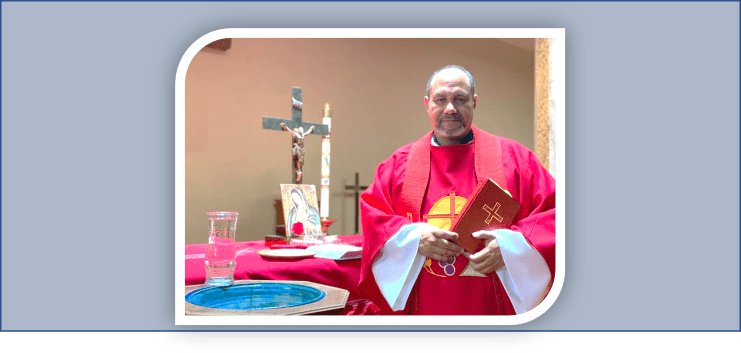
Allegations?
In May 2021, an individual reported to Bishop Mark Holmerud of the Sierra Pacific Synod of the ELCA that she had allegations of misconduct against Rev. Rabell-González. To be clear – these were NOT accusations of sexual or physical abuse or misconduct. What were the allegations? We don’t know, since there have been no formal charges made against Rev. Nelson. To this day, it is unclear what, exactly, Rev. Nelson is said to have done. But whatever might have happened, or not happened, it’s clear that the process by which these allegations were handled by Bishop Holmerud and then Bishop Megan Rohrer are problematic at best, unjust at worst.
To be clear, I am a firm believer in supporting those who come forward to disclose abuse.
For example, in this piece I wrote in support of Christine Blasey Ford, a woman who came forward with allegations against Brett Kavanaugh, then a nominee for the Supreme Court. I also wrote against Brett Kavanaugh in this piece. And I’ve amplified the voices of women in the church who have been victims of sexual harassment, misconduct, or abuse from men in power. (See: #MeToo, #ChurchToo: The Church is Facing the Truth About Its Sexism.) My writing and my teaching clearly demonstrate that I am a feminist and that I am not afraid to speak out in defense of women, especially women in ministry.
But my assertion in this case is that Rev. Nelson is a victim. He is the victim of an ecclesial structure built on systemic racism. He is the victim of retaliation for being a whistleblower. And he is the victim of irrational racial fear fed by the stereotype that Latino and Black men are threatening and dangerous.
Why do I believe Rev. Nelson?
Rev. Nelson and I have been colleagues for nearly twenty years, and I have always known him to be a person of the highest integrity and honor. But I also believe Rev. Nelson because I have accompanied him every step along the way of his ministry over the past year and longer – including what happened to him prior to being accused of misconduct. Most importantly, I have seen the evidence that would reveal the truth about the accusations. I believe this evidence will exonerate Rev. Nelson. But this evidence has never been allowed to be brought forward in an investigation by either the Sierra Pacific Synod or the ELCA. This is because they have not formally carried out a disciplinary procedure against Rev. Nelson.
What has happened instead is that Rev. Nelson has been railroaded by an ecclesial process that has denied him the right to defend himself against these accusations. Even if Rev. Nelson has done something wrong – which I do not believe he has – anyone accused of wrongdoing has the right to due process. Everyone has a right to defend themselves. And if there is evidence that would clear their name, they must be given the opportunity to formally present that evidence.
Here are the 6 reasons why I believe Rev. Nelson was denied due process.
1 – The fact is that Rev. Nelson himself reported misconduct toward Latina women in his former congregation, St. Paul Lutheran in Lodi, Calif.
At the time, Rev. Nelson was an associate pastor, and he reported the misconduct to the senior pastor, Rev. Mark Price. (See this piece for the full timeline of events in this saga.) The women trusted Rev. Nelson enough to reveal to him what had happened to them. But the person in question is white, well connected, powerful, and could do serious harm to these women, so they have been afraid to tell their story.
This person can do – and has done – serious harm to Rev. Nelson as well. Much of what has happened to Rev. Nelson is a direct result of this individual and the things this person has done personally and through others to target Rev. Nelson and destroy his reputation and ministry. People are afraid of this man and refuse to hold him accountable. So it was easier to target the whistleblower, Rev. Nelson, and deny him due process instead.
2 – Rev. Nelson was an Afro-Latiné man serving a white, wealthy congregation as their associate pastor. Thus, institutional racism is a driving force in this case.
Rev. Nelson was called to start a ministry at St. Paul that would reach out to the Latiné population in the Central Valley. But when he brought public attention to the racism in the community, things changed. Rich, white, influential members told the senior pastor and council they would withhold their money unless Nelson was fired. So they forced him to resign and tried to get him to sign an NDA (non-disclosure agreement).
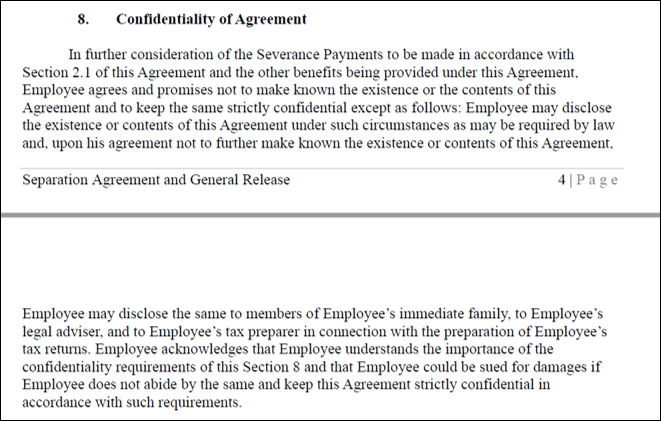
When a church tries to silence clergy, this tells you that they have something to hide. There was and is anger and fear directed towards him from some people in his former congregation. The fact that Rev. Nelson refused to sign the NDA and continued to tell the truth about the racism he experienced in that congregation and community has a direct bearing on why he was denied due process.
3 – Rev. Nelson’s accuser was elected to Synod Council.
Along with the son of the senior pastor of his former congregation, Rev. Nelson’s accuser was elected to Synod Council in May 2021. Thus, the power dynamic was flipped. Consequently, every decision that has been made by the Synod Council about Rev. Nelson contains an inherent conflict of interest. How can there be due process in a situation like this?
4 – Bishop Rohrer has a vested interest in suppressing the truth about Rev. Nelson’s case.
Rev. Nelson was forced to disclose the allegations against him in his speech as a candidate for bishop. (You can watch Rev. Rabell-González’s 5-minute speech here at minute mark 1:16:28.) But during that same candidacy process, Bishop Rohrer was not required to disclose the allegations against themself. There was an actual lawsuit. This means a different standard was applied to Rohrer than to Rev. Nelson. If that double standard is taken seriously, it throws the whole election into question. (You can read the relevant public documents available at https://www.sfsuperiorcourt.org/node/3. It takes a bit of sleuthing by clicking down through several levels, but the information is publicly available at that site.)
It makes sense, then, that they would want to simply remove the problem by first taking Rev. Nelson out of his ministry at Misión Latina Luterana, and then kicking him off the roster of the ELCA. This is exactly what they did on Feb. 7th. Thus, he was denied due process.
5 – The requirement for “therapy” was a double bind.
Instead of opening a formal investigation, Bishop Rohrer convinced Rev. Nelson to submit to therapy in the fall of 2021, assuring him that it was not an admission of guilt. But when Rohrer contacted the therapist and accused Rev. Nelson of “lack of integrity” for posting about the NDA, he knew he was in a double bind. He had agreed to sign away his HIPAA rights in exchange for being able to stay in his call as a mission pastor. This meant that the Bishop could use anything from his sessions or psych evaluation to remove him from his call.
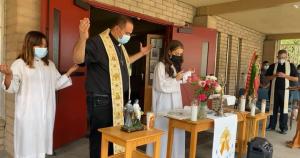
So, realizing he couldn’t trust his bishop, he refused to submit to the therapy. But this meant that he could also be removed for not fulfilling the agreement to do therapy. Thus, it was a no-win situation. No matter what, Rev. Nelson was going to be removed from his call one way or another. Again, due process denied.
6 – The Sierra Pacific Synod did not follow the ELCA’s constitutional process of disciplining an ordained person.
Instead of following Chapter 20 of the ELCA’s Constitution which outlines the process for Consultation, Discipline, Appeals, and Adjudication, Rohrer and the Synod Council voted to remove him from the roster. This was done by denying his request to go on leave from call. Engaging in an extrajudicial means of removing Rev. Nelson from the roster avoided an investigation, kept the secrets covered up, and the truth from coming out.
If synodical leaders thought that the accusations against Rev. Nelson were heinous enough to warrant his removal from the roster, then they should have chosen to follow the constitutionally prescribed process of discipline with a full investigation as he requested. The fact that they chose otherwise is suspect at best, a miscarriage of justice at worst.
Collateral damage
The victims being ignored in this whole situation are the Latiné women in Rev. Nelson’s congregation and the parishioners of Misión Latina Luterana. They are vulnerable, but they have information to share, and they are being dismissed. The synod has not even provided pastoral care for this congregation since removing Rev. Nelson two months ago. As one person from that synod has reported to me, “It’s like Rev. Nelson and the congregation have just been erased.”
Not the first, not the only
Know that this is not the first or only time a pastor has been denied due process in the ELCA. Since I’ve been reporting on Rev. Nelson’s case, many other clergy have shared with me their stories. The mistreatment is especially noticeable when it comes to clergy and congregations of color. Also, this is not the first time a bishop has abused or misused their power in the ELCA. Many people — clergy and laity — have been sharing those stories, too. I’ll write more about that in a future post. In the meantime, one thing is very clear.
This is not what the church of Christ is supposed to do.
The supporters of Rev. Nelson are calling for the following:
- A full, independent investigation of the charges against Rev. Nelson Rabell-González as well as the actions of the Sierra Pacific Synod, Bishop Megan Rohrer, Presiding Bishop Elizabeth Eaton, and the ELCA Churchwide Office.
- Reinstate Rev. Nelson Rabell-González as a rostered leader in the ELCA and mission developer of Misión Latina Luterana.
- Issue a public apology to Rev. Nelson Rabell-González and his family, as well as to the congregation and the Hispanic/Latiné community at large who have been traumatized by these events.
If you would like to stand with Rev. Nelson Rabell-González, we invite you to contribute to his Legal Defense / Life Expense Fund.
Click here: https://fundly.com/nelsonsbills
Your contribution will go towards the legal costs that will enable the truth to come out and due process to proceed. Our goal is for Rev. Nelson to be exonerated and restored to the roster of Word and Sacrament Ministry of the ELCA and to his congregation.
OTHER WAYS TO GIVE:
Venmo: @Nelson-Rabell
PayPal: @NelsonRabell
CashApp: $NelsonRabell
WANT TO MAIL A CHECK?
Make checks out to “Our Saviour’s Lutheran Church – Fresno” with “Rabell” in the subject line and mail them to: 2101 N Fruit Ave, Fresno, CA 93705
Thank you for standing in solidarity with Rev. Nelson Rabell-González and his family, the congregation of Misión Latina Luterana, and the Latiné/Hispanic community.
Read the full saga of Rev. Nelson:
Part One: The Removal of Rev. Rabell-González: A Case Study in ELCA Corruption and Racism
Part Two: ELCA Fires Whistleblower, Rev. Nelson Rabell-González
Part Three: The Day an ELCA Synod ‘Disappeared’ Pastor Nelson Rabell-González
Part Four: The NDA, the Church, and the Attempt to Silence Rev. Nelson Rabell-González
Part Five: Why the ELCA Needs to Investigate the Case of Rev. Nelson Rabell-González
Part Six: Pastor Nelson’s Wife Speaks: The Year of Pain
Part Seven: Rev. Nelson Removed from ELCA Rostered Ministry. Now What?
For a complete compilation of all documents, blogs, commentaries, and posts from all parties about the situation in the Sierra Pacific Synod, visit this website created by Shruti Kulkarni: https://whathappenedinthesps.weebly.com/. This website compiles communications relating to the controversy for accountability, clarification, and ease of access.

The Rev. Dr. Leah D. Schade is ordained in the ELCA. She does not speak for the ELCA; her opinions are her own. She is the author of Preaching in the Purple Zone: Ministry in the Red-Blue Divide (Rowman & Littlefield, 2019) and Creation-Crisis Preaching: Ecology, Theology, and the Pulpit (Chalice Press, 2015). She is the co-editor of Rooted and Rising: Voices of Courage in a Time of Climate Crisis (Rowman & Littlefield, 2019). Her latest book, co-written with Jerry Sumney is Apocalypse When?: A Guide to Interpreting and Preaching Apocalyptic Texts (Wipf & Stock, 2020).
Twitter: @LeahSchade
Facebook: https://www.facebook.com/LeahDSchade/


